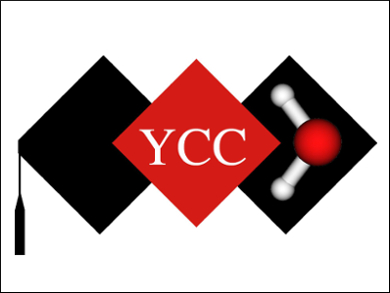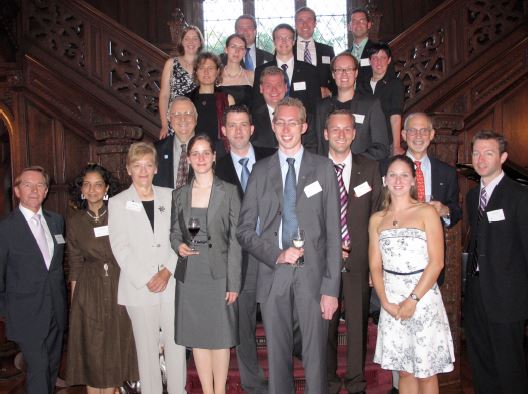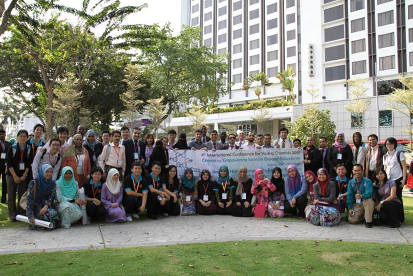An International Exchange Program Perspective
Embarking on an international journey, whether long or short, can elicit a mix of excitement, fear, and optimism. For scientists, who can be rather risk-averse and calculated, it may require significant activation energy to choose to pursue an international opportunity. Globalization is unavoidable, the only way to remain in a leadership position is to embrace [1] those international challenges in the 21st century.
Young chemists have always been poignant advocates for tolerance, collaboration, competence, and driving chemical innovation. The Younger Chemists Committee (YCC) of the American Chemical Society (ACS) is sensitive to changing times and has pioneered to identify and sponsor mechanisms of international exchange and communication for its constituents in the ACS. ACS board members have themselves spearheaded international efforts to forge relationships with other younger chemists on international societies and partners [2].
Connecting European and US Chemists
The exchange programs are opened to young chemists worldwide. Each year the exchange program between the YCC of the ACS and the European Young Chemist Network (EYCN), a fruitful collaboration, continues to grow. American students that are interested in these opportunities are often championed by the YCC for their international scientific experience. European students are hosted in the United States via a EYCN sponsorship. In order to be considered, young chemists submit an abstract, CV, and motivation letter that members from both YCC and EYCN review. This allows for the selection of unique, qualified students.
An example of impressive strides in this area is the exchange program established between the Northeastern Section of ACS (NEACS) and the JungChemikerForum (JCF) of the German Chemical Society (GDCh) [3]. This program is a prototype which features a two-way exchange with the German YCC counterpart. This exchange program is comprised of one-week trips. During this trip, the participants present oral and/or poster talks on their research. Further interactions are promoted through on-site visits of chemical parks, research facilities,and nearby universities. Cultural and social activities are included as key additives. The ACS Fall Meeting in 2010 in Boston marked the 10th anniversary of this program [4]. Whilst what is Metrics that have followed these alumni reveal that a surprisingly large number of the candidates choose to perform a Ph.D. or postdoctoral career in the visited country. Intangible outcomes include personal friendships and professional relationships that are cultivated over the years.
|
|
|
10th anniversary of the NESACS-GDCh Exchange Program at the Boston University Castle in August 2010, Boston, MA, USA (Photo courtesy of M. Z. Hoffman). |
“Young Chemists Crossing Borders”
The National YCC commends international efforts already in place at various US institutions and urges for more International Physical Exchange Programs, or IPEP initiatives (notations chosen according the IREU program) like the one outlined between NESACS and GDCh. IREU (International Research Experience for Undergrads) are programs that allow talented students to research in a foreign country. The lessons learned from these highly successful programs have been utilized by the National YCC. A second IPEP modeled after the NESACS/GDCh exchange was held between the Colorado Local Section and a group of European young chemists at the ACS National Fall Meeting in 2011 in Denver, Colorado. Following this, the local section in Colorado sent six young chemists to the European Chemistry Congress (ECC) in Prague, Czech Republic. In Fall 2013, the YCC hosted the third EYCN exchange in Indianapolis, which was followed by American chemists going across the Atlantic for the ECC in Istanbul, Turkey. In 2012, YCC member Jens Breffke (an alumnus of the NESACS/GDCh program) was awarded a Global Innovations Grant through the ACS International Activities Committee. This grant provided funding for the Indianapolis exchange. A total of four students from the Indianapolis local section attended the YCCB exchange in Istanbul, Turkey in August/September 2014. This program has also been supported by the funds allocated to the YCC annual operating budget.
These multiple sources of funding from within the Society are demonstrative of the value placed on providing opportunities such as this to younger chemists early in their career. We have coined this exchange program “Young Chemists Crossing Borders”, or YCCB, and look forward to continuing to foster our relationship with EYCN.
The biggest exchange event for YCCB is set to take place August 2015. From a pool of 56 applicants, six students were chosen to attend the National ACS Meeting in Boston, MA. Students from France, the United Kingdom, Germany, and Belgium have prepared impressive research abstracts and been chosen to represent EYCN. The previously mentioned GDCh/NESACS exchange will also be sponsoring 14 students, bringing the total up to 20 international young chemists plus additional delegates. This upcoming opportunity to present research in an international setting is unique and beneficial due to the networking and professional advancement opportunities.
National Policies and Local Initiatives
Graduate programs in the US often designate a small percentage of their incoming class for international applicants. Perhaps unique to the American experience is that the US has endorsed invitations to nearly all nationalities, and researchers from different backgrounds to further chemical development. Similarly, universities and research centers abroad continue to welcome US based researchers at all levels. A more comprehensive list of federally funded opportunities at the undergraduate, graduate and postdoctoral levels has been compiled on the ACS International Center website. The ACS Office of International Activities also has full-time staff available who provide information and support for chemists interested in pursuing international exchange. The European Union supports student exchanges avidly with their ERASMUS program. Internships and short-term collaboration visits in academia and industry are also encouraged.
On a local level for instance, the St. Louis Section YCC was awarded a Global Innovations Grant though the ACS International Activities Committee in 2012. This grant provided support to develop an international chemical safety forum featuring a video library, resource library, and interactive discussion board for international and domestic conversations. The goal of the forum is to offer a venue for sharing information related to chemical and biological safety, with institutions which have access to a plethora of resources becoming mentors for those who are still developing their environmental health and safety tools. The launch of the site was unveiled at the International Conference for Young Chemists, or ICYC, held in January 2013 in Penang, Malaysia. Over 400 participants attended the conference, with most participants from Asia. Many other countries were represented.
|
|
|
4th Annual International Conference for Young Chemists held January 2013 in Penang, Malaysia. |
Virtual Exchange Programs as an Alternative
As an alternative to the above IPEPs the YCC has also introduced the concept of an International Virtual Exchange Program (IVEP). Due to the rather high expenses that accompany an IPEP, some local sections or institutions are unable to support this mechanism. Using the internet as an often free and ubiquitous alternative to connect people worldwide, international connections can be realized through convenient (and again, free) software that allow for virtual group meetings and presentations.
Within the ACS, the YCC, International Activities Committee, and Office of International Activities continue to collaborate in an effort to encourage and offer resources for more programs such as IPEPs and IVEPs, preparing young chemists to succeed in a globalized world and maintain our leadership in science and education. We are charged with demonstrating the value of these exchanges, and ensuring that such exchanges are sustainable, and this will depend on critical resources from professional/scientific societies, government funding agencies, corporate sponsorship, and partnerships at large. We believe programs such as those described will continue to develop our scientific workforce, preparing them for global interactions, and ultimately benefitting employers and the economy.
References
[1] Mick Hurrey, Chemical & Engineering News 2010, 88(19), 46. Link
[2] Nancy Jackson, Chemical & Engineering News 2010, 88(34), 43. Link
[3] Morton Z. Hoffman, Ruth Tanner, Michael Strem, The Nucleus 2007, 85(10), 22. Link
[4] Raeanne L. Napoleon, The Nucleus 2010, 88(10), 22. Link
Uzma I. Zakai, Natalie LaFranzo, Christine Dunne, and Jens Breffke
American Chemical Society (ACS), Younger Chemists Committee,
1155 16th Street NW, Washington, DC 20036, USA




